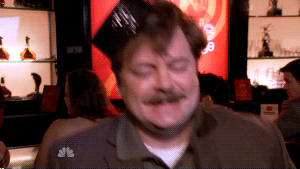Now if I could only convince Todd Phillips of that.
Let's start by saying I really like Todd Phillips—If you think that’s dumb, stop reading, because that’s just how it is. Todd Phillips is really cool to me. If I were to make a film someday and be famous for it, I would probably have to list Todd Phillips as an influence (or leave him out and be a liar).
All of that said, I think (on this occasion in particular) he might be that friend who takes the joke too far. After the first Hangover (which I have been a rabid fan of since day one), I couldn’t help but wonder what happened to these characters as life went on. Unfortunately, it would never happen. The Hangover was a really funny, one-time snapshot comedy of this generation. Oh never mind, the sequel was green-lit the weekend the film came out. My bad. So again, though this time I was 22, I was more excited than probably anybody on the planet for The Hangover 2. Then I saw the first trailer.
Don’t get me wrong, it looks like the movie will definitely have its fair share of laughs, albeit the same laughs from the first movie. If we take the first trailer into account, we see that Zach Galifianakis will be an awkward man-baby, Bradley Cooper will be an asshole, Ed Helms will be paranoid and yell (a lot) about a physical deformity, and the fourth guy will be missing again. Funny thing is, this time it takes place in a “foreign” country. Sniff. Sniff. Do you guys smell that? I think I smell Luke Wilson yelling about his life? Or is that Vince Vaughn being an asshole to a foreigner? Oh no, I figured it out. It’s Will Ferrell acting like a man-baby. This movie is just Old School Dos wrapped up in a new package.
What I’m about to say is a hard truth for me. You should know that.
If Old School Dos wasn’t good enough in 2004, what makes it good enough in 2011? Has the audience gotten stupider? Was it just easier to use this script and bank on the built-in viewers from the first installment than come up with a new story? Either way, it’s a bit disappointing. I haven’t seen the movie, so I may have to eat crow, but I don’t think that will be the case. The Hangover was kind of a one trick pony. It did its one trick very well, but once you’ve seen it, the thrill is gone. Doing another movie seems like the ultimate example of flogging a dead horse. But more power to them. The checks are huge and, more importantly, I’m sure they had a great time making the movie. No matter what, I will love these guys and continue to support their films. I just hope Mr. Phillips doesn’t prove himself to be the friend who doesn’t know when the joke should end.





![Transformers (Two-Disc Special Edition + BD Live) [Blu-ray]](http://ws.amazon.com/widgets/q?MarketPlace=US&ServiceVersion=20070822&ID=AsinImage&WS=1&Format=_SL160_&ASIN=B000NTPDT6&tag=widgetsamazon-20)









